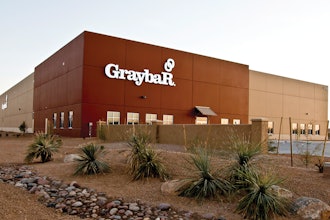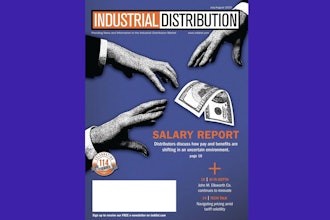
This sponsored article was written by Justin Roff-Marsh, the author of The Machine: A Radical Approach to the Design of the Sales Function. Read the first four chapters in hard copy for free here.
If you hear a crazy idea often enough, there’s a danger that you’ll come to passively accept it — particularly if it’s on the periphery of your primary interest area.
Some of these ideas — think astrology — are harmless enough. But there’s a danger that, every now and then, one of these crazy ideas will implant itself in your mind, masquerading as knowledge, and cause you to make less-than-optimal management decisions.
The commonly accepted idea that “sales leads are scarce” is one such idea.
It’s one part of a duo of bad ideas. The other, that “revenue should be the responsibility of sales,” was discussed in a previous article.
Why Sales Opportunities Are Never Scarce
Let’s start by substituting the imprecise concept of “leads” with “sales opportunities.” The latter concept is self-defining. Yes, a sales opportunity is a chance to sell something. That definition will do just fine for now.
As I’m sure you’re aware, salespeople, sales management and most marketing folks complain endlessly about the shortage of sales opportunities.
If we reflect on why we have salespeople in the first place, it’s pretty clear that we expect them to win new business for our organization. In most cases, we know where that new business will come from. It’ll come from competitors, right?
Our competitors have customers, and we feel that those customers should rightfully be ours. And our competitors share some customers with us, which bothers us even more because we businesspeople are territorial little critters.
So if we want to validate the claim that sales opportunities are scarce, all we have to do is count the number of customers that our competitors have and presumably we’ll see that ...
Hang on a minute!
If your organization is like most, and you count the number of customers that your competitors have in aggregate, it’s likely that you’ll realize that the idea that sales opportunities are scarce is patently false.
Your salespeople’s job should be to chase all of your competitors’ customers, attempting to convince them to defect to your organization. More importantly, they should be chasing the customers that you and your competitors share to convince them to buy from you exclusively.
When you consider that it’s realistic for a salesperson to approach a prospective customer at least four times a year, it’s likely that you’ll conclude that it’s impossible for your salespeople to run out of folks to talk to — even excluding prospective customers who have not yet been lured into purchasing from either you or your competitors.
Why Sales Folks Think Opportunities Are Scarce
If some basic math pokes a hole in the idea that sales opportunities are scarce, then why do sales and marketing folks believe it?
If you listen to their complaints very carefully, you may spot a “tell:” a redundant word that finds its way into the complaint and illuminates their thinking. You’ll often hear salespeople talk about their shortage of “qualified” sales opportunities.
Presumably, a qualified opportunity is a prospect that has some potential — greater than 0% probability — to be a customer, whereas an unqualified opportunity would be a prospect with no potential at all. If so, that’s presumably what the uninitiated would call not-a-sales-opportunity.
Actually, salespeople use the term “qualified” to refer to prospects that have some potential but not enough to justify the salesperson’s attention.
Strange.
So if a salesperson needs to distinguish between those sales opportunities that have some potential and those that have enough to justify their attention — and if they want to maintain that they are short of sales opportunities — then there must be some activity other than selling that is competing for their attention.
And salespeople must be deeming this competing activity to be more important than chasing those customers of your competitors that fall below this qualification threshold.
What on earth could this competing activity be?
What to Do About It
You know what it is, don’t you?
Your salespeople spend some of their time — actually, most of their time — performing simple, transactional tasks for your existing customers. They busy themselves with generating quotes, processing orders and resolving issues: all those tasks that a casual observer would assume to be the responsibility of your customer service team.
And we sanction this by under-resourcing our customer service teams and by allowing our salespeople to take ownership of accounts.
So it turns out that this discussion has a nasty sting in its tail. We started by recognizing that the claim that “sales opportunities are scarce” is patently false. Then we recognized that salespeople only make this claim because they have competing priorities: selling versus servicing existing customers (accounts). And then we realized that we created this environment for salespeople to operate within. Oops!
So, what to do about it? Don’t ask me that. You know already. Get to it.
Justin Roff-Marsh is the founder and president of Ballistix.






















